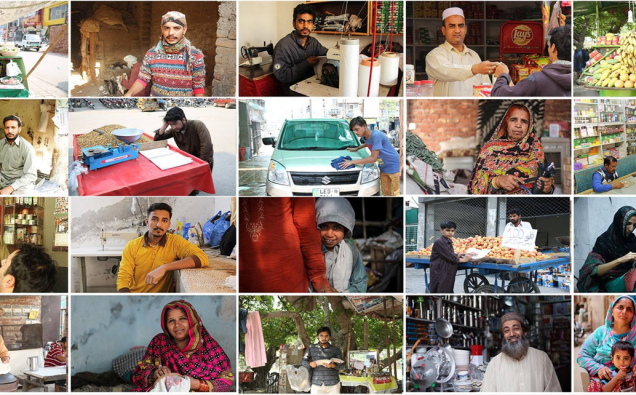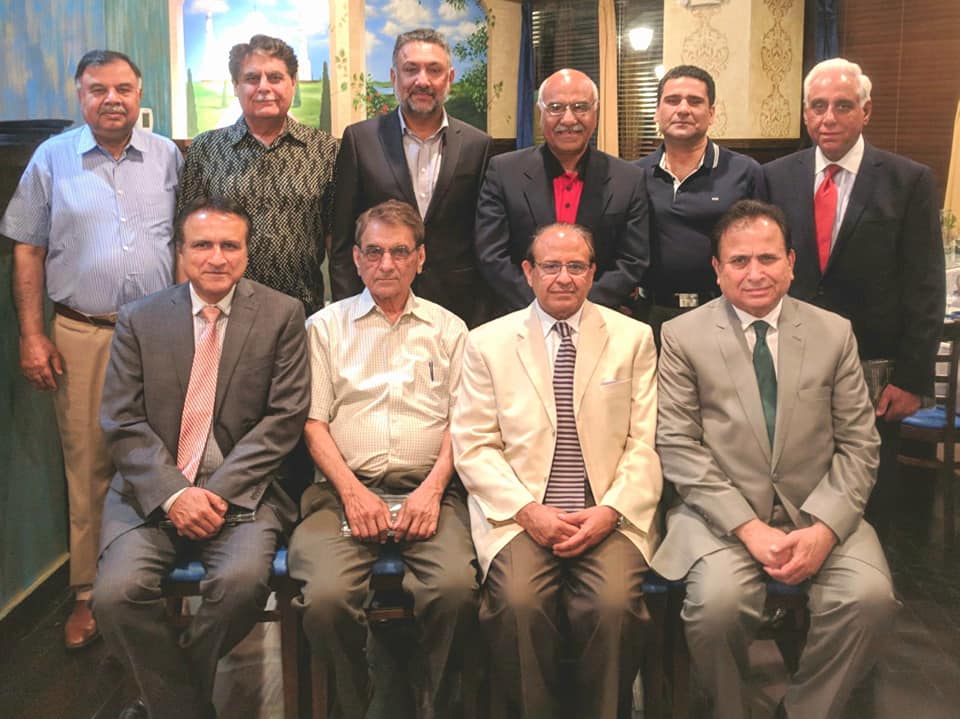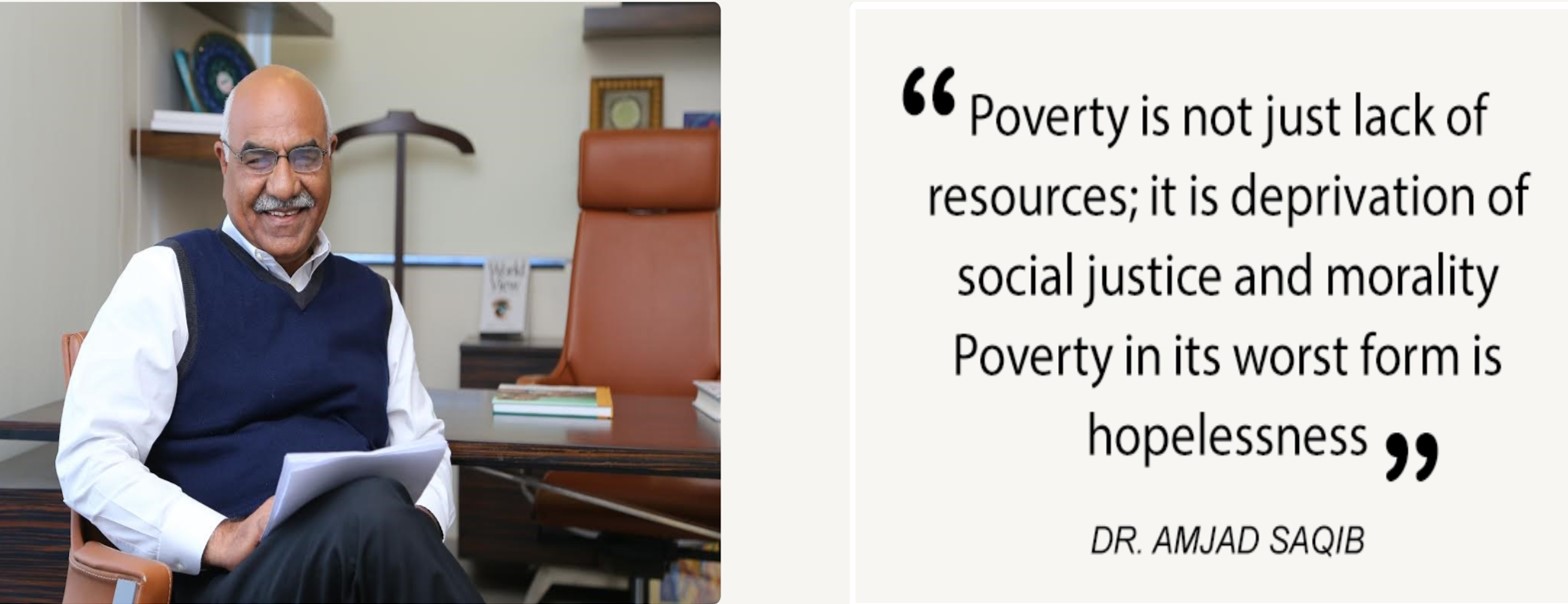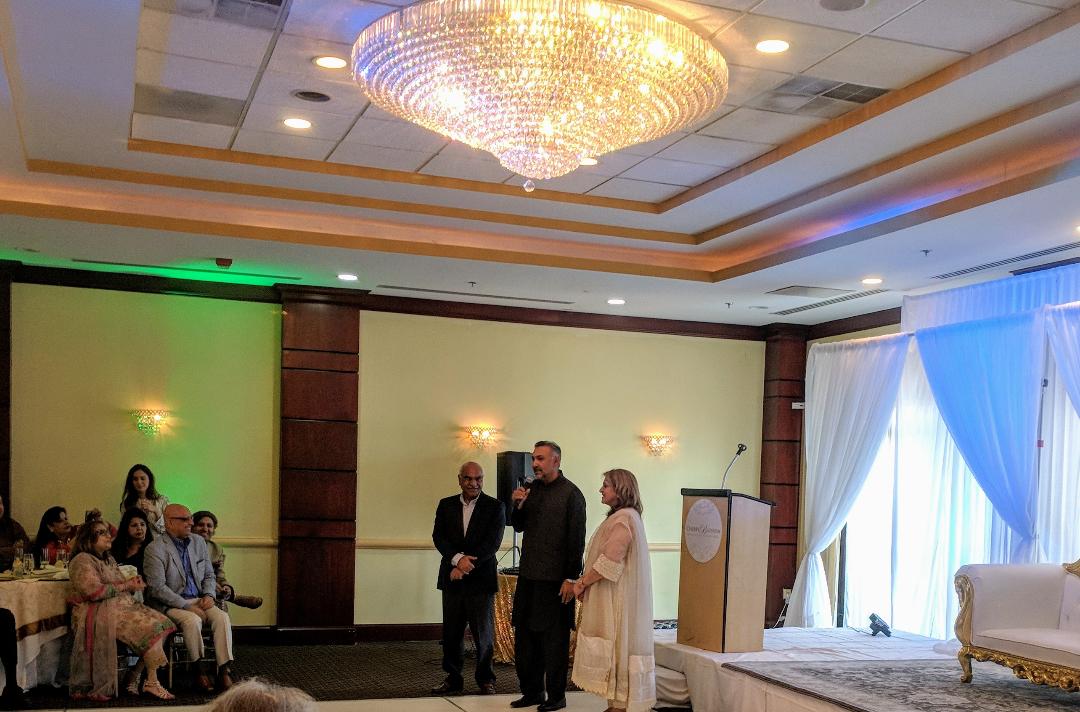
In a society beset with gross socioeconomic inequalities, it might sound incredible but an organization in Pakistan is working effectively to pull the downtrodden out of poverty without putting a premium on its microfinance loans.
Or, perhaps, it could only have happened in a country where economic injustice and a brutal lack of state support steal dreams of people that an organization came into being to touch many lives with its interest-free loans.
Whatever way you may look at Akhuwat, the organization has done a remarkable service to the poor.
Since its beginning in 2001, Akhuwat has disbursed more than $110 million in interest-free loans to underprivileged people, and in the process revived confidence of many in the promise of the country faced with a myriad of challenges.
Akhuwat also brings together people in a neighborhood as its process involves mutual vows to help each other. This way many economically poor not just get fish on their table but learn how to catch a fish and stand up on their feet.
“So far, we have helped more than two million families with loans to establish a variety of sources of livelihood with a 99.96 recovery rate,” says Dr. Muhammad Amjad Saqib, the founder of Akhuwat. He cites the recovery rate – that sometimes sounds too amazing to be true in an environment of distrust – as a proof that Pakistani people mean good, do good and want to live justly and fairly.
“Our people are truthful and they fulfil the pledge they make,” said Dr. Saqib during a visit to the United States in June 2019.
In Washington metro area, Pakistani-American entrepreneur Zia Hassan, Dr. Qadeer Soharworthy and community leader Fauzia Kasuri hosted community meetings with Akhuwat leaders. Azhar Hameed, a California-based entrepreneur, updated the outreach efforts that Akhuwat USA, which he heads voluntarily, is making.
Pakistan’s ambassador to the United States Dr. Asad Majeed Khan also applauded Akhuwat’s contribution toward creating hop and opportunity for the people.
The organization has over 750 branches in 350 Pakistani cities. Pakistanis have generously contributed to the cause that essentially reduces poverty.
The program has also received appreciation in the media as providing an opportunity to the downtrodden with few skills to earn and make an honorable living.
Dr. Saqib has since then spoken at international forums, where financial analysts have noted with awe as to how interest-free loans could work wonders. In the beginning mainstream financial experts were skeptical about the success of an organization that earns nothing on the loan it extends.
But gradually, as Akhuwat’s unique model worked, it gained national and international recognition.
The model – which draws on contributions of volunteers and revolves around the moral commitment on part of the recipients as well as donors – is being taught as a case study at universities in U.S and the United Kingdom.
Akhuwat – literal translation ‘brotherhood’ or solidarity derives its name from the Islamic concept of ‘mua-khaat, the organization says.
The term was coined in 622 A.D. when newly converted people of Mecca, who chose to follow Prophet Muhammad (PBUH) fled persecution and moved to Medina. Mua-khaat was the result of the citizens of Medina sharing their wealth and establishing a bond of brotherhood with the migrants of Mecca.
The founder of Akhuwat describes this as the spirit behind the microfinance.
That is not the only task Dr. Saqib has set out to achieve on his daunting checklist.
Dr. Saqib has also established Pakistan’s first no-fee university in Faisalabad – another welfare project aiming to give access to education to the poor.
“If microcredit can be provided without interest, so can education be provided without charges” says Dr. Saqib.
The success of the project will be supremely important in the long-run as education remains the great equalizer and access to affordable education will offer many students an opportunity to realize their dreams.
EDITOR’s NOTE: This is an updated version of the piece.



















